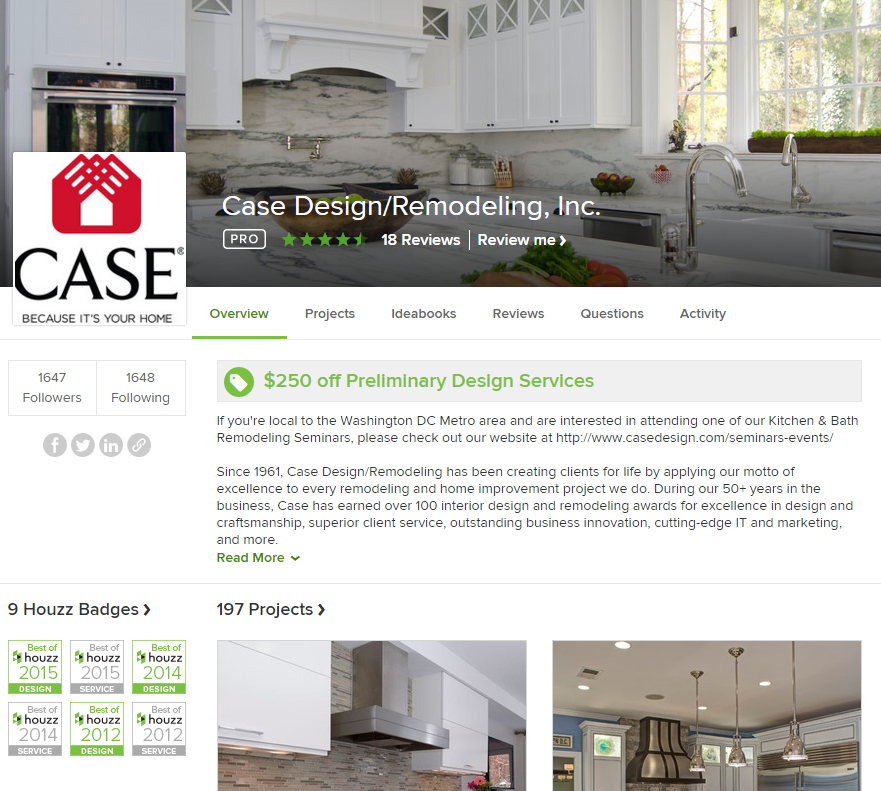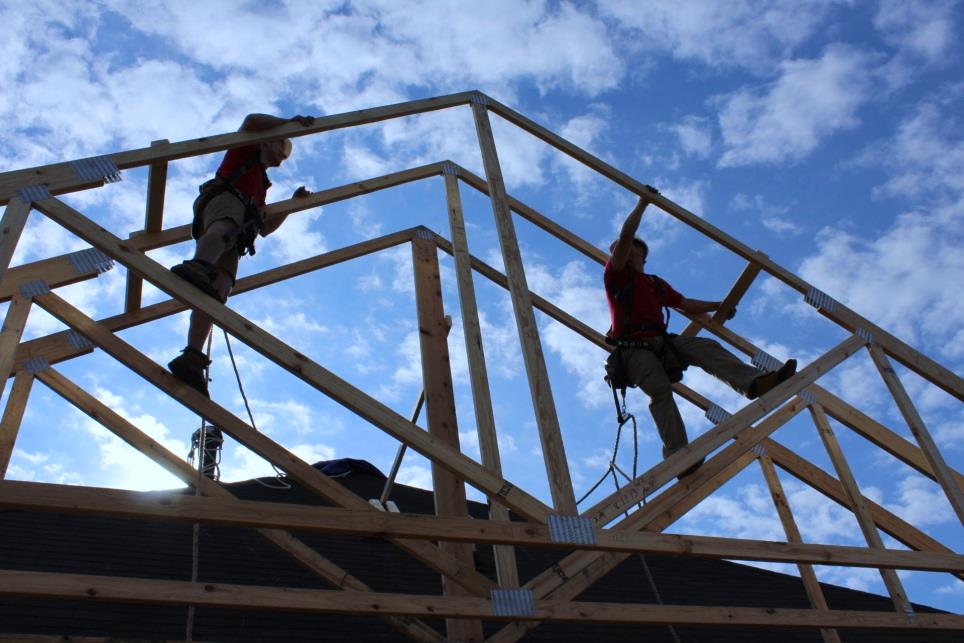The thought of allowing someone to come into your space, move things around, and create something completely different than what was there before can be alarming. That is why you should proceed with caution before you begin a remodeling project. The right contractor will know what is required to plan and execute your vision for your home with limited stress. If you are considering remodeling your home, here are 10 questions you should ask a prospective company that may be interested in the job.
- Is the company licensed and insured? Often, homeowners assume a company is covered because there is a logo on the truck or because they were referred through another company. Licensing ensures that companies are qualified to perform certain types of work and gives homeowners a way to review complaints or issues in the company’s history. Insurance provides protection for the homeowner and for the company completing the work. It will cover damages or injuries incurred during the course of the project and eliminate the use of personal home insurance. Licensing and insurance should be renewed each year so make sure your company has updated versions.
- How long has the company been in business? It’s important to identify the level of experience of the company that you may contract with. How many additions, kitchens, bathrooms, etc. have they completed within the past 5 years? A company may have a great track-record with bathrooms, but a kitchen may not be their expertise. When the economy crashed a few years ago, it was amazing to see the number of new home builders change gears to home remodeling since the new housing market stalled for a while. New home construction and remodeling are VERY different types of work. The processes are different and the design skills required are also very different. Unfortunately, many homeowners have learned this the hard way. The length of time a company has been in the remodeling business will potentially give you a sense of the level of professionalism you should expect.

- What percentage of their business is repeat or referral business? A company that keeps their clients happy throughout the process and boasts quality work can typically grow their business on repeat or referral clients. This is a good indication that their past clients have come back for additional projects or they refer friends, family, and neighbors.

- Can they provide recent referrals? Related to #3. A company should be able to provide a list of references of past clients who have completed projects. Ideally, projects similar to the project you are considering would be most helpful. Today with social media, many companies are able to provide this via websites such as www.Houzz.com.

- Who is responsible for designing the space? Whether it be an interior remodel or an addition, it is important to know who will actually design the space. Will it be done in-house or by a company unrelated to the contractor? Will you be given the option to choose designs from a portfolio? Is the cost of the design included in the estimated budget up front? Will you receive professional consultation on material selections and color palettes, or are you on your own? These are critical elements in the remodeling process to make sure that the final design achieves the goals of your project. You should be very comfortable with your designer, as you will most likely be in contact with them often during the course of the project.

- How is the contract written? In remodeling, there are a number of ways to structure a remodeling contract. Some companies have “time and material” contracts, “cost-plus” contracts, and others offer “fixed price” contracts. For small, repair-type projects, a time and material approach may be the best way to go, but for large remodels or additions, most homeowners like to know BEFORE construction starts, what the bottom line pricing will be. Are the plans/drawings part of the construction contract and who is preparing them? What is the level of detail? Will they provide examples? Also, the most important points that should be highlighted are the construction start and end dates as well as the payment schedule. Payment schedules based on time as opposed to progress are in the best interest of the contractor NOT the homeowner.
- Are finishing materials and final scope of work specified on the contract or are allowances used up front? An allowance is a specified sum of money noted on a contract when exact details or selections have not been finalized. Open items or allowances on a contract CAN lead to additional costs and possibly delays in production. Spending the time up front planning the project and making final selections will greatly reduce the likelihood of cost overruns and time delays. Contracts for larger projects may have a minimal number of material allowances because FINAL selections may not be needed early on. But it would be wise to understand which materials the allowance dollar amount is based. In other words, what does the $5,000.00 counter-top allowance cover? Is that consistent with the materials you have selected or will you end up spending more?
- Who will participate in the construction? The size of your project could determine who does the actual work. For some small-scale projects, a company may provide and in-house carpenter to tackle the project. For larger scale renovations such as a larger master bathroom remodel, kitchen, basement, addition, or whole-house renovation, some companies will have an in-house lead carpenter for a majority of the carpentry work and then bring in outside companies for the specialty areas such as plumbing, electrical, masonry, insulation, drywall, etc. In any case, it is important to understand who the work will be subcontracted to. The contractor should have an established relationship with sub-contractors so the contract will remain within the timeline and predetermined costs. Background checks and drug-testing are ways some companies ensure the homeowners’ safety and security while working in their home. It is really important to understand who will be in your home.

Project Manager Tom Craze and his team of Case Design Craftsman
- How is the construction supervised? Is there a project manager who is in charge of supervising the construction? Is this an in-house person? How many projects does he/she supervise on a regular basis? In some small companies, the person who manages the project construction is also responsible for meeting with new potential clients, developing business, handling warranty work, managing sub-contractors, estimating projects, etc. This can be overwhelming and leave little time for actual on-site management. You should be able to plan a regularly scheduled meeting with the project manager during construction to discuss progress, timeline, and any open items or decisions that need to be made. If the project manager has multiple roles, scheduling this meeting may be a challenge.

- What is the warranty for the work? Most companies will offer the minimum warranty for their work which is one year in most jurisdictions. Some companies offer longer terms for their warranties and others actually sell extended warranties. It is important to understand terms of the warranty and how you as the homeowner would go about having worked performed under warranty as well as what your responsibilities are in order to maintain the warranty.
This may seem like a long list, but it will help you prevent many of the pitfalls that many homeowners face during home remodeling projects with contractors. If you have any questions about the Case process, attend one of our FREE seminars or schedule a consultation today.







